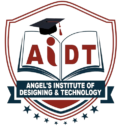Post Graduation Diploma in Computer Applications
Do Computer Computer Applications Management Course with CITC – An ISO 9001:2015 certified organization, associated with Microsoft, ICDL for International Computer courses, NIELIT, MSME & Google.
About Course
The PGDCA is a Post Graduate Diploma which is a one year course that a student can take after Graduation. Computer Applications defines that it is an application or an “app” , is a computer software designed to help the user to perform specific task.
What you will learn?
After completion of this course, You will be able to learn Computer Fundamentals, basics computer concepts, MS Word, Excel, PowerPoint, Access, Documents Drafting, Data Entry, File Uploading-Downloading, Digital Financial Services, Emails, websites, computer languages like C, C++, operating system and computer organization concepts etc.
Scope
After completing this course you can work in Educational Institutes, Space Research Institutes, Hospitals, Health Care, Pharmaceuticals and Biotechnology, Chemical Industry, Environmental Management and Conservation, Forensic Crime Research, Research Firms, Testing Laboratories as:
- Programmer
- Developer
- Quality Analyst
- IT Specialists
- Technology Engineer
- Technical Consultant
- Software Developer.
Module 1
Course Papers
- Language C
- Operating System & Computer Architecture
Course Syllabus
Language C
- C Overview
- Environment Setup
- Basic Syntax
- Data Types
- Variables
- Constants
- Storage Classes
- Operators
- Loops
- Functions
- Arrays
- Pointers
- Strings
- Error Handling
- Mailing
Operating System
- Introduction to operating System
- Responsibilities and Functions of OS
- Different Types of System
- Process Management
- Threads
- Inter-Process Communication
- Scheduling
- Deadlocks
- Memory Management
- Segmentation
- Paging
- File System Interface
- File System Implementation
- Disk Management
Computer Organization and Architecture
Module 2
Course Papers
- Language C++
- Data Structure & DBMS
- Project Work
Course Syllabus
Language C++
- Introduction of C++
- Principle of OOP
- Operators in C++
- variables and Functions in C++
- Classes and Objects
- Operator Overloading
- Constructors in C++
- Inheritance
- Polymorphism
- Exception Handling
- Input and Output in C++
- File Processing
- File Processing
Data and File Structure
- Preliminaries and notations
- Algorithm Complexity
- Physical and Logical Representation of Data Structures
- Arrays
- Linked List
- Stacks
- Queues
- Trees
- Sorting and Searching
Database Management System
- Basic Concepts
- Advantages and Disadvantages of DBMS
- Data Models
- Relational Model
- Relational Database
- Relational Algebra
- Relational Calculus
- SQL
- Joins
- Views
- Relational Database Design and Schemes
- Concurrency Management
- Database Security

